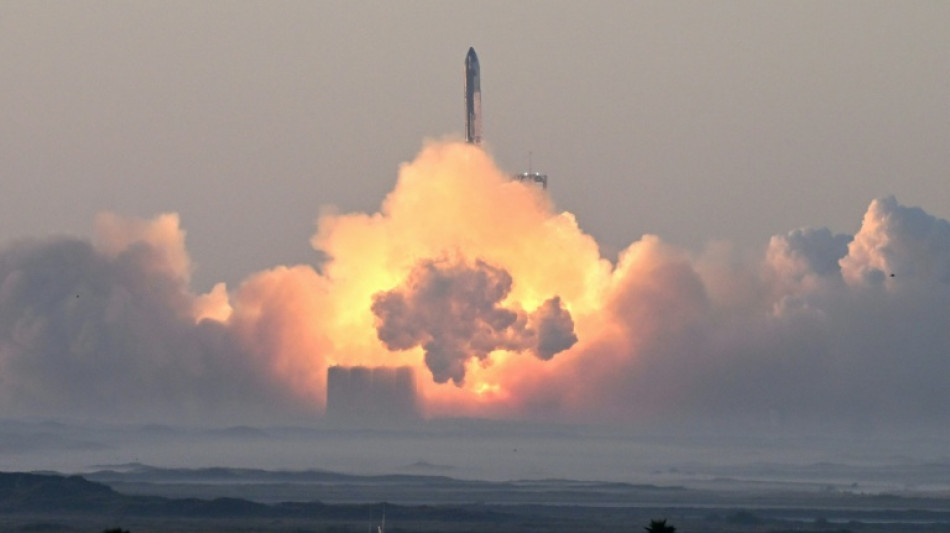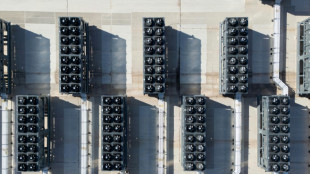

After repeated explosions, new test for Musk's megarocket
Elon Musk's SpaceX announced Friday that its Starship megarocket is scheduled to blast off on a new test flight next weekend after recent attempts have ended in fiery explosions.
The biggest and most powerful launch vehicle in history is planned to return Americans to the Moon -- and is central to the dreams of colonizing Mars envisioned by Musk, the world's richest person.
But repeated explosions that sent debris raining down over Caribbean islands and disrupted flights have piled pressure onto SpaceX to pull off a smoother trial run.
The rocket's 10th test flight is set to launch as soon as August 24 from the company's Starbase facility in Texas, SpaceX said on its website.
During two test flights earlier this year, the rocket's upper stage -- which is the spacecraft intended to carry crew and cargo -- erupted in fiery cascades not long after launch.
Starship managed to make it to space during the last test in late May, however it then blew up when a fuel leak caused it to lose control.
The rocket's propulsion system was also supposed to execute a planned splashdown in the Gulf of Mexico -- but it disintegrated before reaching the water.
Standing 403 feet (123 meters) tall, the black-and-white behemoth is designed to eventually be fully reusable and launch at relatively low cost.
SpaceX has been betting that its "fail fast, learn fast" ethos -- which helped it dominate commercial spaceflight -- will once again pay off.
But the latest string of setbacks, which also includes an explosion during a routine ground test in June, has raised serious questions about Starship's progress.
Musk -- who is known for making extremely ambitious proposals -- maintains that the rocket will launch its first uncrewed missions to Mars next year.
SpaceX has also been sharply criticized over the impact its launches have on people and the environment near where its rockets blast off.
In June, Mexican President Claudia Sheinbaum threatened to sue SpaceX over falling debris and contamination from its launches.
More Starship tests are expected in the coming months, however, after the US aviation regulator approved the number of its annual launches increasing from five to 25.
F.Gentile--GdR



